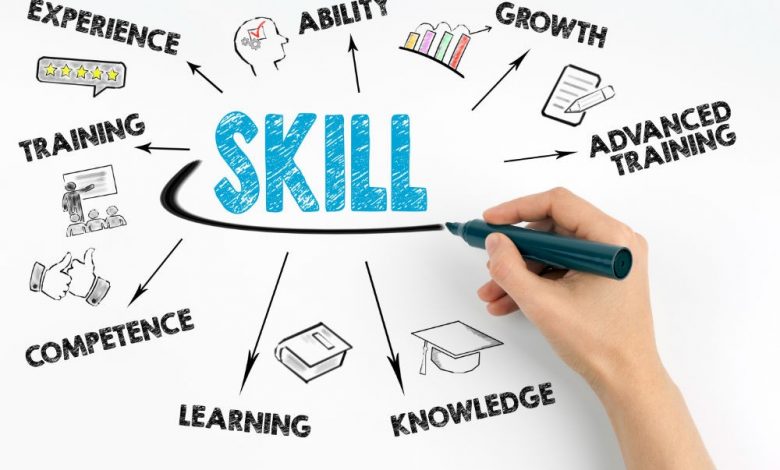How to (improve a specific skill), like public speaking or photography

Gaining new talents or honing ones you already have is essential to job growth and success. You may get increases, promotions, and new employment by demonstrating to employers that you are skilled in a certain set of hard and soft abilities. This article explains the value of learning and developing new abilities and offers a step-by-step tutorial for mastering them.
Why is it important to improve a skill?
Gaining new knowledge and developing your abilities can help you advance professionally and increase the variety of jobs you can choose from. Gaining new talents can also make you feel more satisfied, increase your learning rate, and broaden your skill set. Additionally, you could begin to recognize links between the knowledge and abilities you currently possess and the new ones you learn, which can boost your output even more.
If you are good at managing your time, for instance, you could find that it has a tight relationship with prioritization and organization. By strengthening one talent, you can develop other relevant ones and succeed in your work. How to get rid of Weeds Naturally

1. Workshops and Training Courses
Attending workshops and training sessions is a tried-and-true way to learn. These time-honored techniques have been employed for many years and offer a fantastic and captivating means of skill development. How to (organize your closet) in 5 easy steps
There are several options for training; you may choose the ideal topic for you by participating in a workplace workshop or taking advantage of free online courses like the one offered by PushFar to assist people develop their mentoring abilities. EnoughInfo.net
Because workshops and training concentrate on learning a particular skill that will help you reach your goals, they are the best approaches. Ask your company if they may help with some of the expense of training if you know it will benefit you in your career since most companies are happy to invest in their employees.
Read Also: 10 Key Management Skills And How To Improve Them
2. Set aside some time.
Allocate time for practicing your expertise. You may improve consistently and study more deliberately if you establish a regular program for honing your talent. Consider going to a weekly group where you practice speaking in front of people if you want to improve as a public speaker, for instance. Try to practice when you are most focused and energized when you are arranging time to work on your talent. Try practicing for little periods as well to keep yourself engaged and focused. How to Troubleshoot a Slow Internet Connection on a Laptop
3. Find a Mentor
There is no harm in having a fantastic mentor at your side, regardless of your sector, experience level, or stage of your career. A mentor is someone who can help you overcome obstacles and accomplish your goals by offering guidance and advice. A mentor is an underappreciated yet maybe one of the most helpful things you can do to help you succeed both personally and professionally. A mentor has been there, done that, and has the t-shirt.

Whatever your goals are, there is a mentor out there for you. While most people believe that mentoring is a costly way to learn, Pushkar offers a network of over 85,000 experts who are willing to advise others for free. Each of our global open-network members has the skills and background necessary to assist others.
Having someone to assist us improve our development and brush up on our abilities is one of the most popular applications for mentors. Everyone should be able to speak honestly with someone and have someone to encourage them throughout their journey; PushFar makes mentorship more accessible. Your Guide On How To Ask For An Extension On a Job Offer 2
3. Internet Sources
Many restricted resources on the internet are both free and affordable. Everyone may now more readily access education thanks to the internet; all you need is a device with an internet connection to get started.
You may utilize a variety of tools to assist you in developing the abilities you want, from social media accounts devoted to business news to blogs on the internet. We can study anything we want, anytime we want, thanks to internet education.
While we may desire to participate in the newest webinars and training courses, there are times when our schedules are so crowded with obligations from everyday life that it becomes impossible. A fantastic, quicker solution to this is to use online resources.
Read Also: How To Develop Good Communication Skills
4. Giving back
Volunteering helps others and improves our skills. Whether you want to help a coworker with a project or volunteer for a local non-profit. There are various ways to grow by helping others.
Use social media and Google to identify volunteer opportunities that benefit you. There are several ways to strengthen your leadership or social media abilities, such as volunteering to help a charity with their posts. How to delete a corrupted file (All You Need to Know)
Volunteering can boost future employment opportunities and is effective and hands-on. Employees want experience on your CV, the more the better. Volunteering helps you learn new talents and enhance old ones.
5. Video Content
Millions of online videos are freely available for learning. Some people learn best by doing, while others prefer video to master new abilities.
With the internet came free video sites like YouTube and TikTok. Whatever we want to learn is now clickable. YouTube is known for cute pet videos, but it’s also a great learning site where experts offer their expertise for free.
TikTok, the newest member of the social media family, is underappreciated for its ability to help others. Its incredible rise in popularity has led professionals from around the world to join to share their wisdom and help others grow personally and professionally.
Read Also: Resilience Skills One Should Have in 2023 (And How to Improve Them Professionally)

How to (improve a specific skill), like public speaking or photography
Public speaking is a valuable skill that can open doors to opportunities in various aspects of life, from career advancement to personal development. Whether you’re giving a presentation at work, delivering a speech at a special event, or simply engaging in conversations with confidence, honing your public speaking skills can significantly enhance your effectiveness and impact. In this article, we’ll explore practical strategies and techniques to help you become a more confident and compelling speaker.
1. Understand Your Audience
One of the keys to effective public speaking is knowing your audience. Take the time to research and understand who will be listening to your speech or presentation. What are their interests, concerns, and expectations? Tailor your message and delivery style to resonate with your audience, making it more engaging and relevant to them.
2. Practice, Practice, Practice
Like any skill, public speaking improves with practice. Set aside time to rehearse your speech or presentation multiple times before the actual event. Practice speaking aloud, focusing on your tone, pace, and body language. Consider recording yourself or practicing in front of a mirror to identify areas for improvement. The more you practice, the more confident and polished you’ll become. How much water should I drink to clear Acne?
3. Focus on Structure and Content
A well-structured speech or presentation is easier for both you and your audience to follow. Start with a strong opening to grab your audience’s attention, followed by a clear introduction of your topic and main points. Organize your content logically, using transitions to guide your audience from one point to the next. End with a memorable conclusion that reinforces your key message and leaves a lasting impression.
4. Develop Your Delivery Skills
Effective delivery is crucial for engaging your audience and conveying your message effectively. Pay attention to your voice, varying your tone and volume to keep your audience interested. Use gestures and body language to emphasize key points and connect with your audience visually. Maintain eye contact with your audience to establish rapport and build trust. Practice speaking clearly and articulately, avoiding filler words and distractions.
5. Seek Feedback and Learn from Experience
Don’t be afraid to seek feedback from others after your speeches or presentations. Ask for constructive criticism from colleagues, mentors, or trusted friends and family members. Take note of their feedback and use it to identify areas for improvement. Additionally, learn from your own experiences by reflecting on what worked well and what didn’t. Each speaking opportunity is a chance to grow and refine your skills further.
Read Also: How To Improve Your Cognitive Skills
Conclusion
Becoming a confident and compelling public speaker is a journey that requires dedication, practice, and continuous learning. By understanding your audience, practicing regularly, focusing on structure and content, developing your delivery skills, and seeking feedback, you can steadily improve your public speaking skills and make a greater impact with your words. So embrace the opportunity to share your ideas, inspire others, and become the master of the art of public speaking. How to block YouTube ads on iPhone (The Ultimate Guide)
